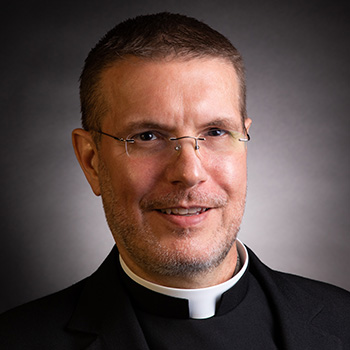 The unpardonable sin refers to Jesus’ words in the Gospel of Matthew: “Therefore, I say to you, every sin and blasphemy will be forgiven people, but blasphemy against the Spirit will not be forgiven. And whoever speaks a word against the Son of Man will be forgiven; but whoever speaks against the Holy Spirit will not be forgiven, either in this age or in the age to come” (Matthew 12:31).
The unpardonable sin refers to Jesus’ words in the Gospel of Matthew: “Therefore, I say to you, every sin and blasphemy will be forgiven people, but blasphemy against the Spirit will not be forgiven. And whoever speaks a word against the Son of Man will be forgiven; but whoever speaks against the Holy Spirit will not be forgiven, either in this age or in the age to come” (Matthew 12:31).
Given the seriousness of Jesus’ words, it is not uncommon to worry about this sin. (When I was in high school, I was certain I had damned myself for laughing at a joke about the Trinity until a priest reassured me that I still had a chance of making it.)
Blasphemy against the Holy Spirit is far more than an inappropriate joke. The Catechism of the Catholic Church states: “There are no limits to the mercy of God, but anyone who deliberately refuses to accept His mercy by repenting, rejects the forgiveness of His sins and the salvation offered by the Holy Spirit. Such hardness of heart can lead to final impenitence and eternal loss” (CCC 1864). In other words, the unpardonable sin is the refusal to accept salvation when it is offered by God at the time of death (i.e. final impenitence). Grace comes to us through the Holy Spirit and by rejecting that final grace, we sin against the Spirit.
It is hard to imagine anyone refusing salvation, but it happens. There are people who prefer to hang onto hatred or prejudice right up to the moment of death (and even brag in advance that they intend to do so). One of the best artistic depictions of final impenitence I have ever seen is the conclusion of the play “The Last Days of Judas Iscariot,” by playwright Stephen Adly Guirgis. Judas has died and stands before Jesus. He is deeply embittered at how Jesus’ mission ended and lashes out at Jesus, who lovingly tries to reason with him. The more Jesus speaks words of love, however, the angrier Judas gets. Unable to contain himself, he blurts out that he hates Jesus and always will. The play ends with Jesus tenderly washing the feet of Judas, whose face is turned away, contorted with rage. While this last encounter between the two isn’t likely to have happened, it is a good meditation on how final impenitence is freely chosen. It is never accidental.
Even so, Jesus’ reference to the unpardonable sin causes unnecessary anxiety for some people. The best reassurance I can give you is what helped me when I was a teenager: If you worry that you may have committed the unpardonable sin, you can be certain that you haven’t.
Father Jones is pastor of Sts. Teresa and Bridget Parish in St. Louis.